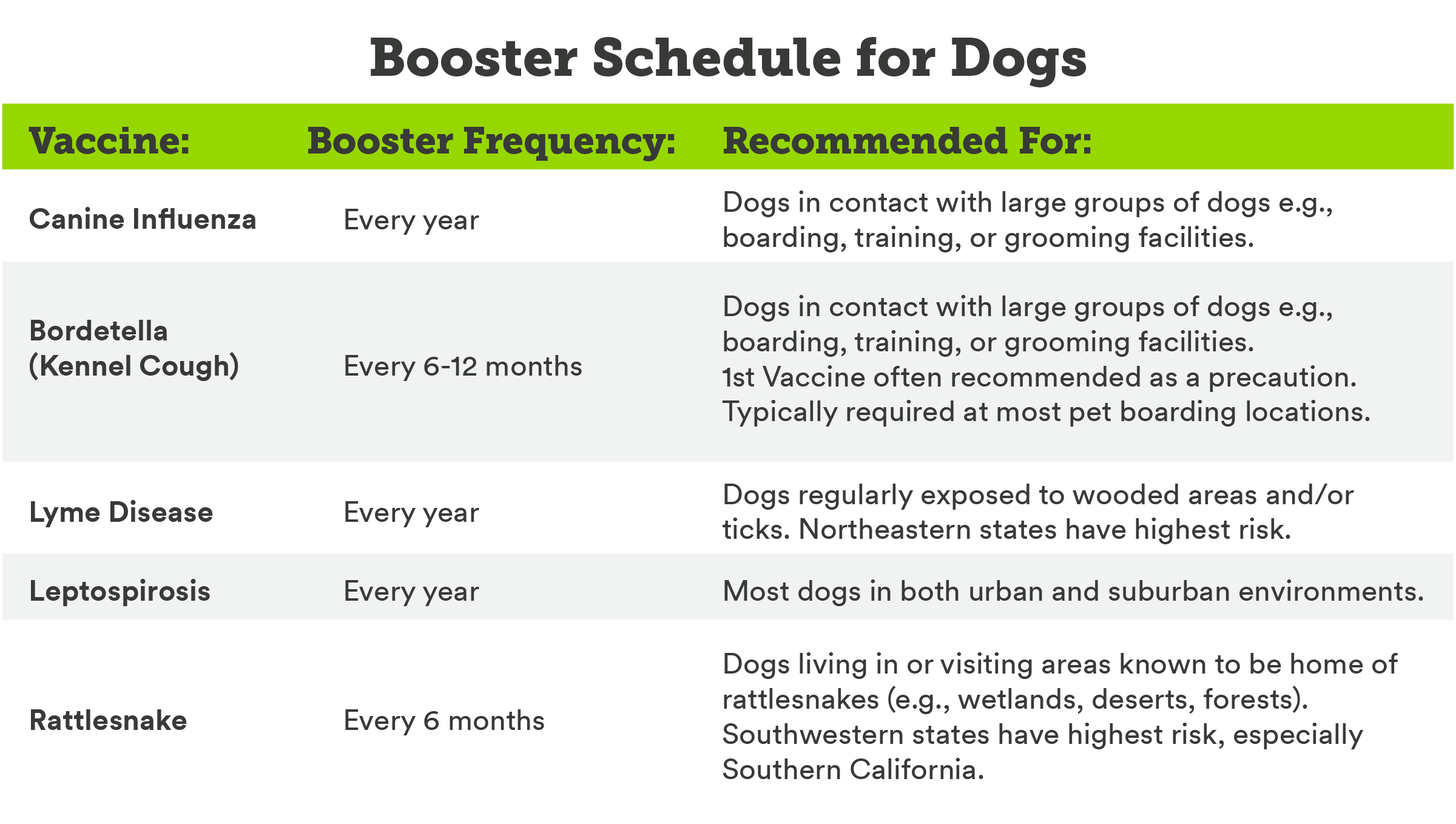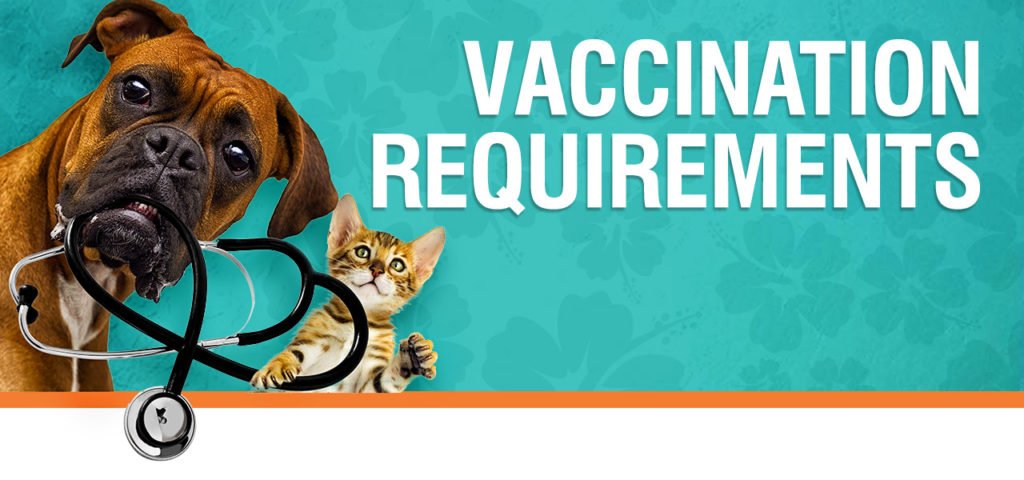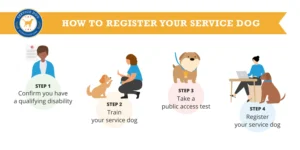Before boarding your dog, certain vaccinations are necessary. These shots help protect your pet and others. So let’s jump in deep: What Shots are Required for Dogs to Be Boarded?
Boarding facilities prioritize health and safety. They require dogs to have vaccinations to prevent the spread of diseases. Common vaccines include rabies, distemper, parvovirus, and Bordetella. Each facility may have specific requirements, so it’s essential to check ahead. Knowing which shots are needed can save you time and stress.
It ensures your dog can enjoy their stay without health risks. Preparing for boarding helps you feel confident about your pet’s care. In this post, you will learn about the required vaccinations and why they matter. Understanding these requirements makes boarding easier for you and safer for your dog.
Table of Contents
Introduction To Dog Boarding
Dog boarding is a great option for pet owners. It provides a safe place for dogs when their owners are away. Many pet owners worry about their dog’s health while boarding. Vaccinations are essential for a healthy stay. Let’s explore the required shots for boarding.
The Importance Of Vaccinations
Vaccinations protect dogs from serious diseases. Many boarding facilities require specific shots. These vaccines help keep all dogs safe. Here are the common vaccinations needed:
| Vaccine | Description |
|---|---|
| Rabies | Protects against rabies virus, essential for all dogs. |
| DHPPC | Combats distemper, hepatitis, parvovirus, and parainfluenza. |
| Bordetella | Prevents kennel cough, highly contagious among dogs. |
| Leptospirosis | Protects against bacteria found in water and soil. |
Check with the boarding facility for specific requirements. Some places may need extra vaccines. Keeping your dog vaccinated is crucial for their health.
Preparing Your Dog For Boarding
Preparation is key for a smooth boarding experience. Start by making sure your dog is up to date on vaccinations. Schedule a vet visit if needed. Here are steps to prepare:
- Gather vaccination records.
- Pack your dog’s favorite toys.
- Bring their regular food.
- Include any medications.
- Schedule a visit to the boarding facility.
Familiarize your dog with the boarding place. This helps reduce anxiety. A short visit can make a big difference. Ensure your dog feels comfortable. Happy dogs enjoy their time away from home.

Credit: www.thrivepetcare.com
Core Vaccinations For Boarding
Before boarding your dog, certain vaccinations are essential. These core vaccines help protect your dog and others from serious diseases. Boarding facilities often require proof of these vaccinations. Understanding these vaccines is key for your dog’s safety.
Rabies Vaccine
The Rabies vaccine is crucial for all dogs. Rabies is a deadly virus that spreads through bites. It can affect both animals and humans. Most states require proof of this vaccination for boarding.
- Administered at 12 weeks of age.
- Boosters are given every 1 to 3 years.
- Check local laws for specific requirements.
Canine Parvovirus Vaccine
The Canine Parvovirus vaccine protects against a highly contagious virus. This virus can cause severe gastrointestinal issues. Puppies are especially vulnerable. Vaccination is essential for dogs attending boarding facilities.
- Initial dose at 6-8 weeks of age.
- Boosters every 3-4 weeks until 16 weeks old.
- Annual boosters are recommended afterward.
Canine Distemper Vaccine
The Canine Distemper vaccine protects against a serious viral disease. This disease affects the respiratory, gastrointestinal, and nervous systems. It is highly contagious and can be fatal.
- First dose given at 6-8 weeks of age.
- Booster doses every 3-4 weeks until 16 weeks old.
- Annual boosters are suggested for ongoing protection.
Ensure your dog is up to date on these vaccinations. Boarding facilities often require vaccination records. Check with your vet for your dog’s specific needs.
Additional Recommended Vaccinations
Before boarding your dog, consider some additional vaccinations. These shots help protect your pet from serious diseases. While not always required, they are highly recommended. Let’s explore these vaccines in detail.
Bordetella Bronchiseptica Vaccine
The Bordetella bronchiseptica vaccine protects against kennel cough. This illness spreads easily among dogs, especially in crowded places. Symptoms include:
- Dry, honking cough
- Runny nose
- Fever
Vaccinating your dog can reduce the risk of infection. Many boarding facilities require proof of this vaccine.
Canine Influenza Vaccine
The canine influenza vaccine protects against dog flu. This illness can cause severe respiratory problems. Key points include:
- Symptoms: cough, fever, and nasal discharge.
- Highly contagious among dogs.
- Vaccination is recommended before boarding.
Getting this vaccine helps keep your dog safe from outbreaks.
Leptospirosis Vaccine
The leptospirosis vaccine protects against a serious bacterial infection. This disease can affect both dogs and humans. Here are important facts:
- Spread through contaminated water or soil.
- Symptoms include fever, vomiting, and lethargy.
- Vaccination is especially important in certain regions.
Consider this vaccine if your dog will be in high-risk areas.
Vaccine Schedules And Timelines
Understanding the vaccine schedules for dogs is crucial for boarding. Vaccinations help keep dogs healthy and safe. Boarding facilities often require proof of vaccinations. This ensures all dogs are protected from diseases. Knowing the right vaccines and timelines can help you prepare.
Puppy Vaccination Schedule
Puppies need several vaccinations during their first year. These shots help build their immunity. Here is a typical vaccination schedule for puppies:
| Age | Vaccination |
|---|---|
| 6-8 weeks | DHPP (Distemper, Hepatitis, Parvovirus, Parainfluenza) |
| 10-12 weeks | DHPP (2nd dose) |
| 12-16 weeks | Rabies |
| 16-20 weeks | DHPP (3rd dose) |
Some puppies may need extra vaccines. Consult your vet for specific needs. Keep records of all vaccinations. This helps when boarding your dog.
Adult Dog Booster Shots
Adult dogs need booster shots to maintain immunity. These shots are usually given every one to three years. Here are common vaccines and their timelines:
- DHPP: Every 3 years after initial series
- Rabies: Every 1-3 years, depending on state laws
- Bordetella: Annually for kennel cough protection
Check with your vet for personalized recommendations. Keep vaccination records handy for boarding. It is important for your dog’s health and safety.
Health Checks Beyond Vaccinations
Vaccinations are crucial for your dog’s health. They protect against serious diseases. However, there are other important health checks. These checks help ensure your dog is healthy enough for boarding. Let’s explore what these checks involve.
Parasite Prevention
Parasites can be a serious threat to dogs. They can cause discomfort and illnesses. Boarding facilities often require parasite prevention. This includes:
- Flea and tick prevention: Monthly treatments are essential.
- Worming: Regular deworming is necessary to keep your dog safe.
- Heartworm prevention: A yearly test and monthly medication are recommended.
Some facilities may ask for proof of these treatments. Always check the boarding facility’s requirements. Keeping your dog parasite-free is vital for their health.
Wellness Exams Prior To Boarding
A wellness exam is important before boarding your dog. A vet will check your dog’s overall health. This exam usually includes:
- Physical examination of the body.
- Checking for signs of illness.
- Reviewing vaccination records.
- Discussing any health concerns.
These exams help catch health issues early. They also ensure your dog is fit for boarding. Some boarding facilities may require proof of a recent wellness exam.
Prepare for a happy stay. Keep your dog healthy and stress-free.
Documentation And Records
When boarding your dog, having the right documents is crucial. Many facilities require proof of vaccinations. This ensures the safety of all pets. Proper records help avoid misunderstandings.
What Paperwork To Bring
Before you head to the boarding facility, gather the necessary paperwork. Here’s a list of important documents:
- Vaccination records
- Health certificate
- Emergency contact information
- Proof of ownership or adoption
- Feeding and medication instructions
Having these documents ready makes the check-in process smoother. It also helps the staff care for your dog properly.
Understanding Vaccine Records
Vaccine records detail your dog’s vaccination history. Most boarding facilities require specific vaccines. These vaccines protect against common diseases. Here are the key vaccines you should know:
| Vaccine | Required? | Notes |
|---|---|---|
| Rabies | Yes | Must be up-to-date. |
| DAPP (Distemper, Adenovirus, Parvovirus, Parainfluenza) | Yes | Must be given annually or every three years. |
| Bordetella (Kennel Cough) | Yes | Recommended every six months. |
| Lyme Disease | No | Depends on your dog’s exposure risk. |
Always check with the boarding facility. Some may have specific vaccine requirements. Bring the original records or copies. This helps ensure a safe stay for your dog.
Choosing The Right Boarding Facility
Finding the right boarding facility for your dog is crucial. This choice affects your dog’s comfort and safety. A good facility meets health standards and employs trained staff. Before deciding, consider a few key factors.
Health And Safety Standards
Health and safety are top priorities in any boarding facility. Look for the following:
- Vaccination Requirements: Ensure the facility requires up-to-date vaccinations.
- Cleanliness: The area should be clean and odor-free.
- Emergency Protocols: Check for emergency plans and procedures.
- Outdoor Space: A safe, secure area for outdoor activities is essential.
Ask about their health policies. A reputable facility should have clear guidelines. Ensure they monitor dogs for signs of illness.
Staff Qualifications And Training
The staff’s qualifications matter greatly. Trained staff can handle dogs safely and effectively. Look for these qualifications:
- Animal Care Experience: Staff should have experience working with dogs.
- First Aid Training: Knowledge of pet first aid is important.
- Behavior Understanding: Staff should understand dog behavior.
- Continuous Education: Ongoing training is a good sign of quality care.
Meet the staff before boarding your dog. Observe their interaction with the dogs. This will give you a sense of their training and care level.

Credit: pixeespawspetpalace.com
Preparing Your Dog For The Boarding Experience
Preparing your dog for boarding is important. It helps reduce stress. A smooth transition makes the experience better for your pet. Follow these tips to get your dog ready.
Adjusting Your Dog’s Routine
Changing your dog’s routine can ease anxiety. Start a few days before boarding.
- Shift meal times closer to the boarding schedule.
- Increase exercise for extra energy release.
- Introduce short stays away from home.
- Keep the same bedtime routine.
These small changes help your dog feel comfortable. They will adjust to the boarding environment more easily.
Mental Preparation And Anxiety Reduction
Mental preparation is key for your dog’s comfort. Use these techniques to help reduce anxiety.
- Practice short separations. Start with 15 minutes and gradually increase.
- Provide familiar items like toys or blankets.
- Use calming aids, like pheromone sprays or anxiety wraps.
- Maintain a positive attitude. Your dog senses your feelings.
These steps help your dog feel secure. A relaxed dog adapts better to new situations. Prepare your dog well for boarding.
Conclusion: Ensuring A Safe Boarding Stay
Preparing for your dog’s boarding stay is crucial. Proper vaccinations help keep all dogs safe. Follow these steps to ensure a smooth process.
Final Checklist Before Boarding
Use this checklist to prepare your dog for boarding:
- Vaccinations: Confirm all required shots are up to date.
- Health Records: Provide a copy of vaccination records.
- Food: Pack enough food for the entire stay.
- Medications: Include any medications your dog needs.
- Comfort Items: Bring your dog’s favorite toy or blanket.
Emergency Planning
Have a plan for emergencies. Know the facility’s procedure for medical issues. Keep contact information handy.
Consider these important steps:
- Provide your contact number.
- List a local emergency vet.
- Share a backup contact person.
Ensure your dog is microchipped. This helps in case your dog gets lost.
Stay informed. Ask the boarding facility about their safety measures.

Credit: www.brownsbridgeah.com
Frequently Asked Questions
What Vaccinations Do Dogs Need For Boarding?
Dogs typically require core vaccinations, including rabies, distemper, and parvovirus. Some facilities may also recommend Bordetella and canine influenza vaccinations. It’s essential to verify specific requirements with your boarding facility. Ensuring your dog is up-to-date on vaccinations helps protect their health and that of other pets.
How Often Do Dogs Need Vaccinations For Boarding?
Most vaccinations are administered annually or every three years, depending on the vaccine type. Bordetella, for example, is often required every six months. Always check with your veterinarian for the best vaccination schedule for your dog. Keeping vaccinations current is crucial for safe boarding experiences.
Can My Dog Be Boarded Without Vaccines?
Most boarding facilities require proof of vaccinations for your dog. Without these, they may not allow your pet to stay. This policy helps prevent the spread of diseases among dogs. Always consult your chosen facility for their specific vaccination policies before booking.
What Is The Bordetella Vaccine For Dogs?
The Bordetella vaccine protects dogs against kennel cough, a contagious respiratory illness. It is especially recommended for dogs that will be in close contact with other pets. Many boarding facilities require this vaccination for admission. Consult your veterinarian for more information and vaccination schedules.
Conclusion
Keeping your dog healthy is important for boarding. Required shots protect your dog and others. Check with your vet for the latest vaccination rules. Make sure to gather all documents before boarding. This helps ensure a smooth process. A well-vaccinated dog enjoys their stay.
You can relax, knowing your pet is safe. Plan ahead to avoid last-minute stress. Proper preparation makes boarding a positive experience for everyone. Your dog’s health and happiness are worth it.



